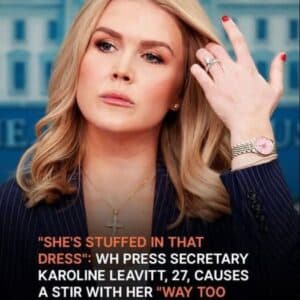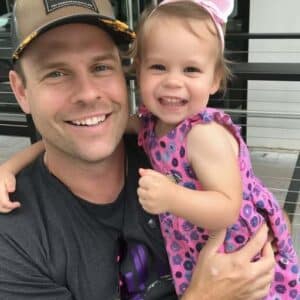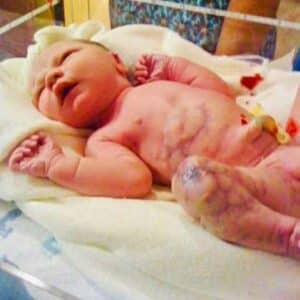People rush through airports like wind through alleyways—focused, impatient, detached. But every once in a while, amid the shuffle of suitcases and gate changes, something extraordinary sneaks in. That morning, it started with a teenager’s careless words and ended with a story that would ripple for years.
Peter and his fifteen-year-old son Arnold were waiting at Terminal 3 in Oak Brooke International Airport. The morning buzzed with activity—crinkling boarding passes, rolling wheels, and overhead announcements. Peter sat on a worn plastic chair, glancing at his watch. It had been five years since he walked away from flying to start his own company, a leap of faith that gave him and Arnold a more stable life than he’d ever imagined.
Arnold, all limbs and attitude, sat beside him glued to his phone. Raised in comfort, he had never known uncertainty—never needed to.
“I’m going to the bathroom,” Arnold mumbled.
“Don’t go far,” Peter replied, adjusting his headphones. “We board in thirty.”
“I’m not a baby, Dad.” Arnold rolled his eyes and disappeared into the crowd.
Peter smiled faintly and hit play on his audiobook. Maybe this trip to visit Grandma would shake Arnold loose from his screen dependency. Maybe they’d reconnect.
As Arnold weaved through passengers, a pretzel cart distracted him from the bathroom signs. He barely noticed the woman pushing a cleaning cart beside the wall. She was invisible to most—mid-fifties, wiry gray hair, blue janitorial uniform. Her name tag read ALICE.
A soapy puddle stretched just ahead of him. Trying to avoid bumping into a family, Arnold stepped into the slick spot and stumbled, water splashing across his shoes.
“Watch out!” the woman called, startled.
Arnold snapped. Embarrassed and soaked, his voice came out sharper than intended. “Why would you leave that bucket there? Maybe do your job properly next time!”
Alice looked stunned. “I—I didn’t mean—”
“Maybe you’re too old for this!” he snapped, venom in every syllable. The crowd nearby stiffened.
Then came the voice that stopped everything.
“Arnold. Enough.”
Peter had followed his son just in time to witness the outburst. His expression was tight with disappointment.
“Dad, I didn’t mean—”
“I said enough.”
Peter walked past his son and turned to Alice. Her hands were shaking. Her eyes were wet.
“I’m so sorry,” Peter said softly. “No one should ever be spoken to that way.”
She looked down, nodding.
Peter knelt and began cleaning the spill himself. “Let me help.”
“No, it’s fine,” Alice said, her voice catching. Then she looked at him more closely. “Wait a second… I know you.”
Peter paused. He studied her eyes, her expression—and then it hit him. “Alice? From Gate 14? You used to clean the aircraft?”
She broke into a small grin. “Peter, the pilot! I can’t believe it!”
Arnold blinked, confused. His dad smiled wide, warmth spreading through his expression.
“You remember me?” Alice asked.
“I never forgot you,” Peter said.
They found a small airport café and sat down, coffees in hand. Peter didn’t care about missing the flight. This was more important.
“Arnold,” he began, “you were only ten at the time. You didn’t know what was happening.”
Alice sipped her coffee. “It really wasn’t a big deal.”
“Yes, it was,” Peter said, locking eyes with his son.
Years ago, Peter had finished a long shift. He was exhausted, his mind foggy. He’d just received a paycheck—$4,800 in cash. Every penny was needed. Medical bills had piled up. The bank had warned him they might take the house.
He went to the restroom, washed his face, and left his bag on the counter for just a moment. When he got home, the bag—and the money—were gone.
Panic hit hard. He raced back to the airport, but the restroom was empty. Lost and Found had nothing.
Then a quiet voice called, “Are you Peter? The pilot?”
He turned around. A woman in blue held his bag. “I think you left this.”
He opened it. Everything was there.
He’d tried to pay her. She refused.
“It’s not mine,” she said simply.
Back in the café, Peter turned to Arnold. “That money saved our home. It paid for your school. For your mother’s final treatments.”
Arnold’s face paled. “You… you saved my life?”
“I just returned what wasn’t mine,” Alice said gently.
Peter nodded. “I looked for her afterward, but she’d moved to care for her sick sister.”
Arnold was quiet for a long moment. “I was awful to you, Alice. I didn’t know…”
She gave him a soft smile. “We all make mistakes. What matters is what we do next.”
When their boarding call came, Peter ignored it. “We’ll take the next one. This matters more.”
Then he reached for his phone. “I’ve been saving for this. Alice, I want to send you on a vacation—Paris, Rome, wherever you want to go.”
Alice’s eyes welled up. “You remembered I always dreamed of Europe?”
“Every word,” Peter said. “You helped us when you didn’t have to.”
Arnold straightened. “Can I contribute, too? From my savings?”
Peter beamed with pride. “That’s a wonderful idea.”
Alice wiped her tears and stood. “I should get back to work.”
“No,” Peter said firmly. “Take the day off. I’m going to make sure your boss knows exactly how special you are.”
Arnold looked at her with new respect. “Can you teach me how to spot people like you?”
Alice smiled. “No lessons needed. Just pay attention. Choose kindness—every time.”
As Peter and Arnold walked toward their rescheduled gate, Peter knew something had shifted. Arnold didn’t just say sorry. He felt it.
And as Alice returned to her cart—lighter somehow—Peter realized something else: sometimes the best teachers aren’t in schools or boardrooms. Sometimes, they’re the quiet ones who choose to do the right thing, even when no one’s watching.





